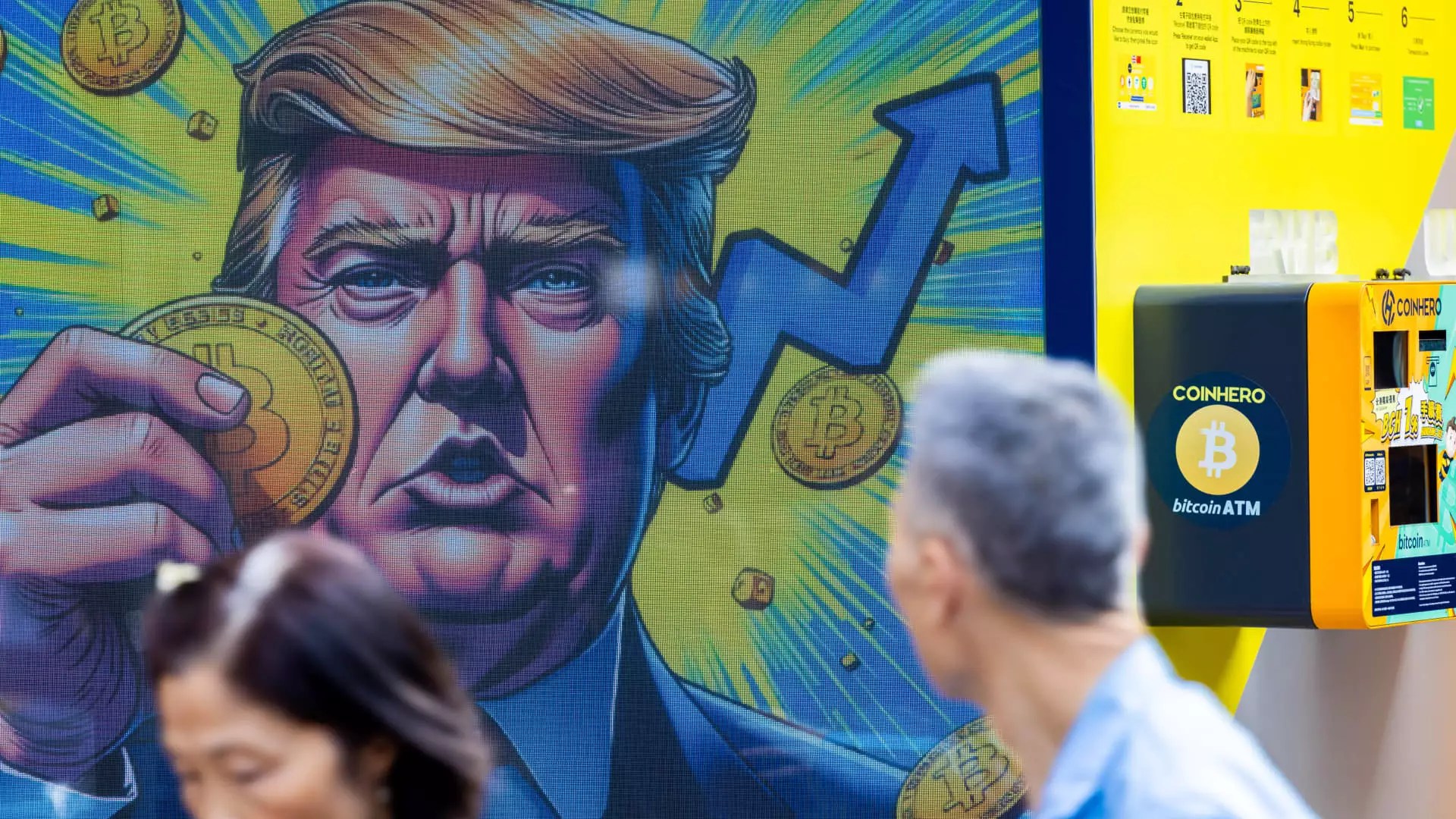In an unprecedented spectacle of political maneuvering, President Donald Trump and his allies have reportedly harvested nearly $900,000 from trading fees linked to the $TRUMP cryptocurrency token in just two days. This financial windfall is audaciously intertwined with an offer for an exclusive dinner with the president, aimed at the top holders of this digital currency. Such a move not only raises eyebrows but suggests a broader trend where the corridors of power intersect uncomfortably with the often-volatile world of cryptocurrencies. The fund-raising event, to be hosted at Trump’s private club, exemplifies the growing tendency of political figures to manipulate digital assets for their personal gain—a practice that should concern all who value ethical governance.
Memecoins: A New Mode of Political Fundraising
The concept of memecoins—cryptocurrencies that gain traction through internet culture and social media rather than intrinsic value—has proliferated in recent years. While they can facilitate innovative financial transactions, there’s a darker side to this phenomenon; they can also be exploited for obscured financial interests and profit-making ventures by those in power. The $TRUMP token embodies these concerns, as its rapid value escalation—reportedly over 50% following the dinner announcement—raises critical questions about the motivations behind such promotional tactics. The notion that a sitting president could potentially convert political capital into personal revenue streams is indeed troubling and raises the specter of corrosive “pay-to-play” politics.
The Ethical Quagmire: Promoting Corruption
Critics, including prominent figures like Senator Chris Murphy, have vocally condemned this initiative as “the most brazenly corrupt thing a President has ever done.” This sentiment reflects a broader consensus among watchdogs who argue that the promotional strategy employed by the $TRUMP initiative veers dangerously close to financial misconduct. The dinner invitation could easily be interpreted as an explicit attempt to monetize access to presidential influence, an unethical precedent that undermines the ethical standards expected of public office holders.
Legal experts have noted that while the president is technically unbound by many laws regarding financial conflicts of interest, this lack of restriction does not absolve him from moral responsibility. The deliberate entanglement of personal financial interests with presidential duties is a treacherous path that threatens the integrity of the political sphere, as it conveys the message that political access can be bought—a notion that should alarm citizens across the political spectrum.
Insider Trading and the Token’s Mechanics
A striking element of the $TRUMP token is its structure. Data suggests that around 80% of this digital asset is controlled by the Trump Organization and its affiliates. The built-in fee structure, which reroutes a portion of each trade to wallets associated with the project’s creators, effectively funnels money into those at the helm of the initiative. This automatic profit generation for insiders further blurs the lines between genuine political engagement and profit-motivated scheming. As traditional campaign funding is overshadowed by these new financial instruments, the potential for exploitation only increases.
This system inherently places everyday investors at a disadvantage, as they bear the risks while insiders continue to profit from their participation in a market with fluctuating values. These dynamics lay bare the fragile ecosystem of cryptocurrencies, especially when entangled with political entities driven more by profit than public good.
The Broader Context: Political Capital and Cryptocurrency
In this era, the rising influence of cryptocurrencies is both a symptom and a cause for concern with respect to the evolving landscape of political finance. Trump’s previous support from the cryptocurrency sector during his campaign, combined with funding from various digital asset organizations, points to a burgeoning relationship between political ambitions and speculative financial schemes.
Moreover, the promotion of digital assets by public figures can be seen as not merely a financial venture but an ideological stance that challenges existing regulatory frameworks. As many in the cryptocurrency community portray such ventures as innovative, it is crucial to scrutinize who truly benefits from this supposed innovation. The intersection of politics and digital currencies demands more scrutiny than it currently receives, especially when it comes to transparency and accountability.
The Legislative Call to Action
The growing unease surrounding the $TRUMP token has prompted calls from members of Congress, like Senators Elizabeth Warren and Adam Schiff, for investigations into potential ethical breaches. Their points are well-taken; however, the question remains: will politicians act decisively to clamp down on such practices? The geopolitical implications and risks of allowing the interplay of large sums of money and high office to continue unregulated cannot be understated.
Ultimately, as cryptocurrencies like $TRUMP continue to interlace their way into the political landscape, the need for clear ethical guidelines and legislation becomes ever more urgent. The stakes are far too high for complacency, as the potential for corruption grows with every incident that blurs the line between public service and private profit.


Leave a Reply